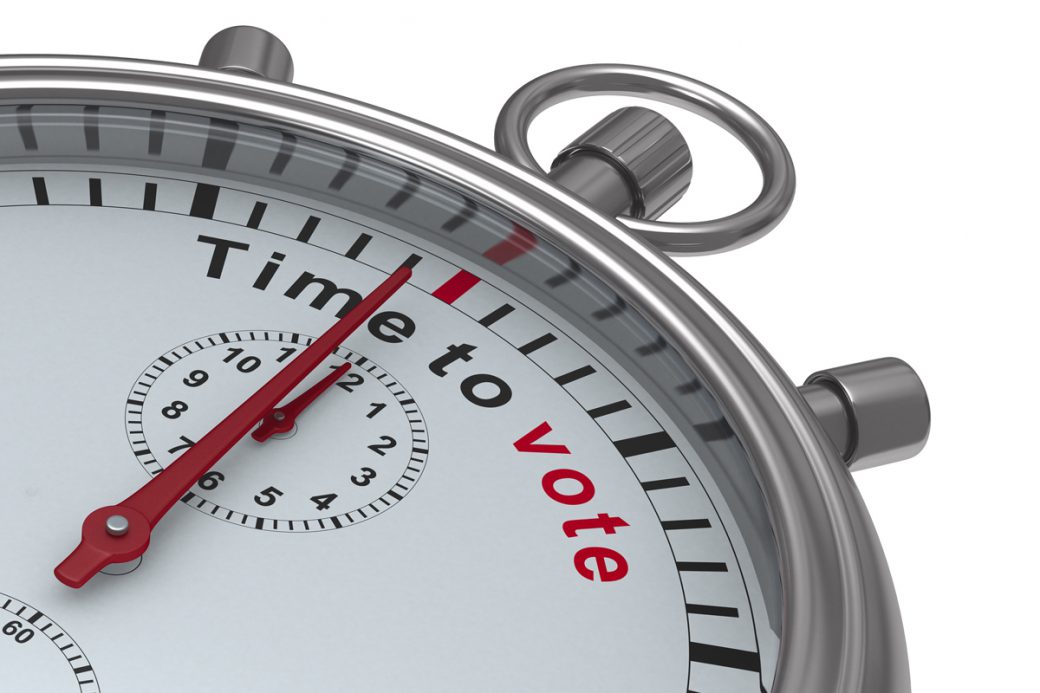Your condominium association elections for your Board of Directors are governed by the Florida Condominium Act (Chapter 718 of the Florida Statutes), and Rule 61B-23.0021 of the Florida Administrative Code. Your association governing documents may also contain requirements for your election. Generally, these requirements are contained in the association’s By-Laws. With this in mind, there are a number of key deadlines and procedures that the association must follow to have a valid election.
The election should be held on the same day and at the same time as your association’s annual membership meeting. Your governing documents may specify when the annual meeting will take place (such as, for example, the third Monday in January), or the documents may give the Board more flexibility in setting the date. The location for the meeting is specified in the governing documents, or if not specified, is required to be held within forty-five (45) miles of the condominium property. However, due to the pandemic, the location has become a more complicated issue. Many associations are now hosting their annual meetings virtually through platforms such as Zoom or Teams, or in a hybrid manner by setting a location for a limited number of masked attendees and/or to count paper ballots. Whether an association decides to continue with the virtual component of its meetings once large gatherings are safe will depend on the association. As there is no size fits all, a conversation with your association attorney may be helpful.
Once the date is set, the board needs to be a wary of a number of deadlines. Sixty (60) days prior to the election, the association must send out a first notice. The first notice needs to contain the name and address of the association, and the date of the meeting. If the association has provided for and authorized electronic voting, this first notice is also required to disclose the procedure and deadline for members to consent to electronic voting.
The association should not create a committee to nominate candidates, but the board may want to create a search committee to encourage members to run. Those who wish to be considered as candidates in the election must submit a notice of intent to run at least forty (40) days before the election is scheduled. The Florida Condominium Act contains a number of eligibility requirements for candidates. The candidate must not be delinquent in paying any monetary obligation to the association. The candidate must not have been previously suspended or removed from the board of directors by the Division of Florida Condominiums, Timeshares and Mobile Homes. Lastly, the candidate cannot have been convicted of a felony, unless the person’s civil rights have been restored for at least five years. The governing documents of the association may have other requirements for eligibility. A common requirement for many associations is that the candidate be a member of the association, or the owner of the unit. It is crucial for the association to ensure that the candidate is eligible by this fortieth day to be placed on the ballot. The placement of an ineligible candidate on a ballot is an error that has the potential to invalidate an election if discovered too late.
Candidates may wish to introduce themselves to their neighbors, especially in large condominiums or if the candidate is new to the community or has not previously been active in the community. To do so, the Florida Condominium Act allows candidates to submit one-sided information sheets, no larger than 8 ½ inches by 11 inches. This information sheet must be submitted at least thirty-five (35) days before the election. The Florida Administrative Code states that this information sheet may contain such information as the candidate’s education, qualifications or background. It is also crucial for the association to mail all timely received information sheets with the ballots and the second notice, as described below.
The number of vacancies on your Board may vary from year to year. For example, this may happen if your governing documents allow for staggered terms, wherein directors have terms which expire after different numbers of years. If there are not enough eligible candidates who give their notice of intent to run (in other words, there are more vacancies than candidates), the association is not required to have an election. Because these notices must be received forty days prior to the election, an association will know early on whether they will need to hold an election. If no election is necessary, the association will still hold its annual meeting on the date scheduled, and at this meeting, announce the names of the new board and the number of unfilled seats.
Between fourteen (14) and thirty-four (34) days before the election, the association must send a second notice to all members. This second notice is much lengthier than the first. It needs to include the agenda for the meeting, the candidate information sheets, the ballot, and two envelopes. These two envelopes consist of an “outer” envelope and an “inner” envelope, both strictly regulated by the Florida Administrative Code. This double envelope system allows the association to maintain the secrecy of the ballots and anonymity of the voter. The outer envelope will indicate the name of the voter, the unit number, and a signature space. The information should then be verified by the association, which can be done in advance of the meeting by an impartial committee. This is the time at which the association would check, for example, that the owner’s voting rights have not been suspended. The committee should not, however, open the envelopes prior to the meeting. The ballot will be contained in the inner envelope, which will have no identifying information. At the meeting, the envelopes will be separated prior to tallying the votes so as to maintain secrecy.
The Florida Condominium Act requires that at least twenty (20) percent of the eligible voters in the community cast ballots for the election to be valid. This requirement is different than the requirement of having a quorum to hold various meetings. There is no quorum requirement for an election. Lastly, the election is decided by a plurality of votes.
There are a number of issues that may arise prior to, during, or even after your election. Your association attorney can guide you through the election process to ensure that your association is following all pertinent provisions of the Florida Condominium Act, the Florida Administrative Code, and your governing documents.

Karyan San Martano
Attorney at Law, Becker
Ft. Lauderdale | bio



